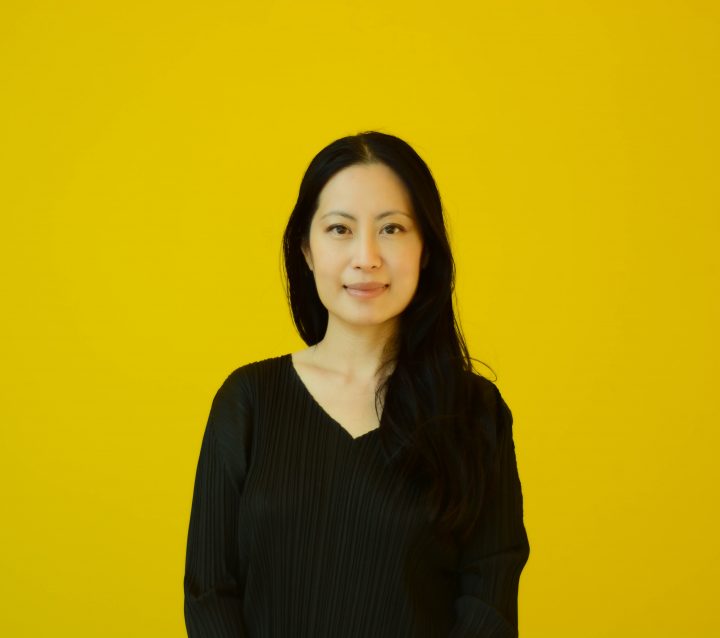Please tell us your story! How did you get to where you are today?
Gosh! How long do you have? I’ve been learning music (piano) since I was 4 years old, but I never thought I could have it as a career, so I studied Arts/Law, and then I practised as a tax consultant for a while. When I was on maternity leave, I was so bored that I started making handbags. I sold some of them to department stores like Lane Crawford in HongKong, and decided I was going to be an entrepreneur instead! So that was my break with the sort of steady, professional career and into a more dynamic, unstable existence. It’s only been in the last 10 years when the kids grew up that I really got back into music and composing. I have a lot of music theory background from my youth, but to really grow as a composer I needed feedback and peers around me, so I applied to do my undergrad in Interactive Composition again at the VCA. I’m now just completing my PhD and the process of doing all that has been to broaden my music-making beyond traditional composition into new sound technology and to work across different disciplines and artforms. Sometimes I feel I was too old to start in the industry as my peers were all already well established in the field when I started as an ‘emerging’ artist, but I cannot imagine the younger me composing. I needed all that journey through motherhood and heartbreak and all that to draw on.
Why did you want to get into the music industry?
I feel it’s almost like a calling. Everything in my life has led me back to it, through chance meetings, chance opportunities. For me, being able to make music everyday is the greatest luxury imaginable. I feel incredibly grateful that I can do something that I love so much. Sometimes people talk about music as a career and job, but if that’s all it is, you might as well stack shelves at Bunnings, you will more likely earn more. On this note calling it an ‘industry’ doesn’t feel right to me, it seems to prioritise economic outcomes. I don’t feel like I’m in the music industry, I just make music.
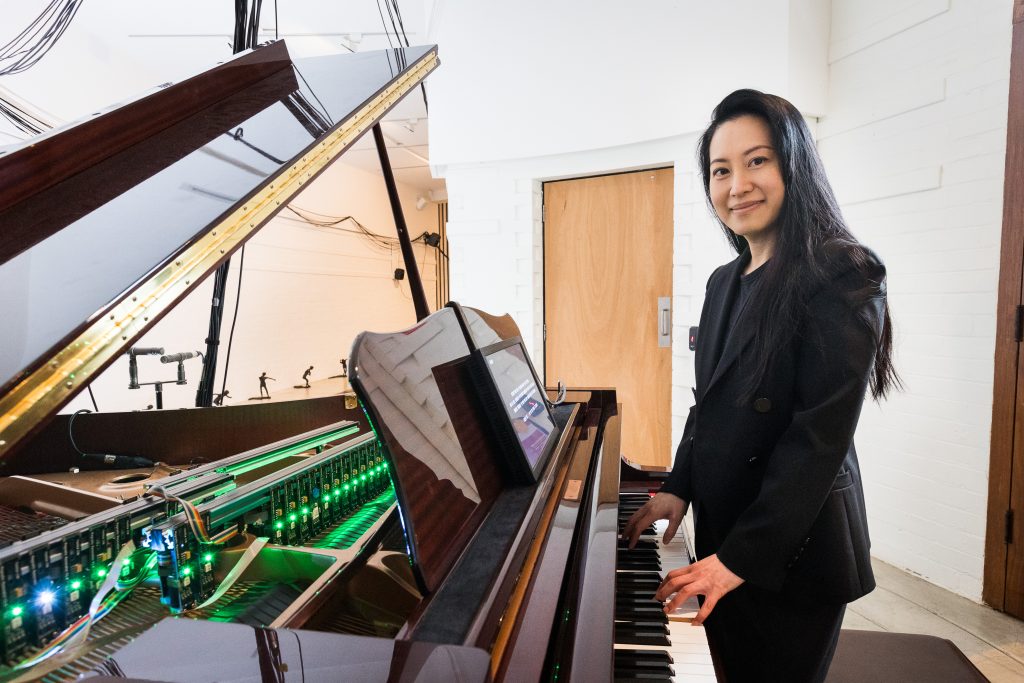
Do you feel that higher education is a necessary step to enter the music industry?
I think it depends on the type of music you are interested in. For the most part, a higher education is absolutely not necessary. And in fact if you are in the commercial popular music sector, it might very well be detrimental. Too much theory can be dangerous.
However if you are interested in more experimental practice and things at the cutting edge of sound technology, then having access to leaders in the field and resources is extremely important. Having said that, I learnt most of my technical knowledge from free online tutorials and forums. In this open access world, it is possible to learn everything you need without a higher education, just a lot of persistence. The hardest part is to know what you don’t know.
Let’s talk about the highs vs the lows of your career. What is your greatest achievement?
I feel like I just started, so my greatest achievement is definitely ahead of me. An artist is never completely happy with their work, it’s only finished when the deadline strikes. In experimental practice it is also very hard to judge work in the current time. You certainly cannot or should not judge it based on audience response – look at Stravinsky or Schönberg. Someone once told me that a real artist shapes taste and is always therefore mostly misunderstood in their own time, and everyone else eventually follows. I don’t think I will ever be that person, but if I can at least let some people see or hear things in a fresh way, or help some other artist do that, I am happy. All that other stuff, awards and reviews, don’t actually say much about the value of the work, only that it conforms to current expectations.
“the greater the risk, the higher chance of failure. But we need this, because society keeps changing, and the art that we make also has to change. So I advocate for risk-taking”
Who has been your biggest champion in your career?
My partner, Konfir. He’s not a big fan of music, particularly experimental music. But whenever I need to make a rig for an installation, or drive a van full of equipment to Sydney, he does it for me. I’m also really, really bad at promoting myself, and he’s always the one telling people what I’m up to.
What is the best piece of life advice you’ve ever received?
However painful something is now, you will laugh about it eventually.
Tell us about your advocacy work…
One of the things I really care about is nurturing experimentation, in all forms of art. For most artists, that is extremely precarious because there is no established audience, collector or platform. And the greater the risk, the higher chance of failure. But we need this, because society keeps changing, and the art that we make also has to change. So I advocate for risk-taking in two ways. First of all, financially. I established Project Eleven with my partner to support artists and organisations with risk-taking work. Secondly, I help out on governance with a couple of organisations that support the experimental sector – the Substation and Liquid Architecture. And I am constantly advocating for a more open and inclusive approach to programming at the Melbourne Recital Centre, where I am also on the Board.
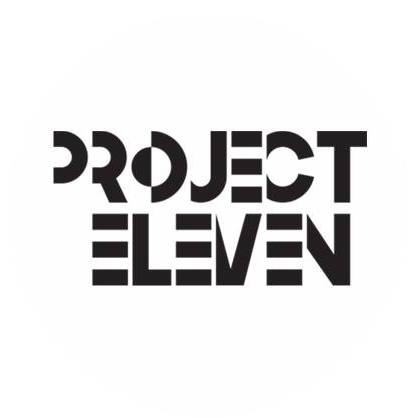
What is your big picture career goal?
I want to write a musical that runs on Broadway for 10 years! I know, not exactly experimental, but I love musicals! They were the reason I got into composing in the first place. And I’d like to go back there, as my last flourish in the world after doing other weird sh*t.
Who are your role models in the industry be they local or international?
My good friend, electroacoustic composer Patrick Hartono, for never taking the easy option and composing with integrity.
Patrick Hartono
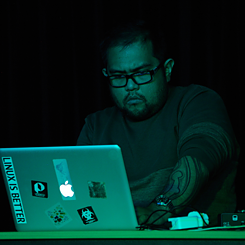
Robin Fox, for being able to juggle not only a very successful solo career but also co-establishing and running MESS (Melbourne Electronic Sound Studio) for the community.
Robin Fox
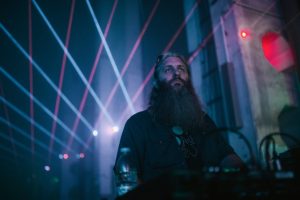
Internationally, Daniele Ghisi and Andrea Agostini for developing the Bach MaxMSP library and making it freely available.
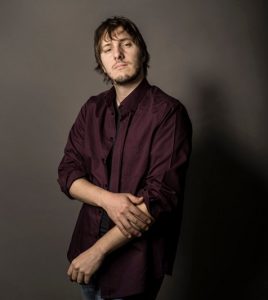
Andrea Agostini
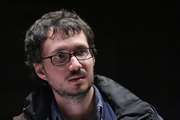
Same with Rebecca Fiebrink for the Wekinator machine learning application, which has influenced a lot of other applications and artistic practices. All of those people who have put countless hours and deep, deep knowledge into making things that enable other artists to do more and doing it for no financial return.
Rebecca Fiebrink
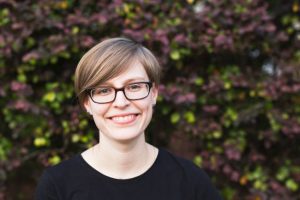
Do you think the Australian Music Industry is where it needs to be in regarding diversity? If yes or no, what would you like to see/seen?
I think it’s not bad…you know, I come from Asia, where racism, gender inequality and sexual inequality is legislated into actual laws that prevent people from doing things and makes freedoms that we take for granted here criminal. So in comparison I would say that we do pretty well here, but of course, there is always more to be done to address imbalances. I think in Australia that the socio-economic barriers to getting a music education or being exposed to the arts from an early age is more of an issue than, say, gender.
“Someone once told me that a real artist shapes taste and is always therefore mostly misunderstood in their own time, and everyone else eventually follows.”
Production tends to be viewed as such a heavy male dominated part of the industry. What do you think needs to be implemented within the industry to ensure that Women/GNC folk feel that there is a place for them within the production space?
Ummm…I’ve never felt that there isn’t a place for me. I do a bit of work with creative technology such as gaming engines and coding, and yes, it does tend to be male-dominated, but that has never stopped me from getting into it or made me feel like I can’t do it. I’ve certainly never had the experience of anyone assuming that I can’t do something because of my gender. I think maybe that’s because I grew up in a family where gender was immaterial to achievement.
However, I understand that not everyone grows up in a supportive environment, and others have also had bad experiences along the way. So I think most importantly, we must have visible role models. And we must have safe spaces and opportunities for women/GNC folk to learn the technical skills. I recently did a class at MESS on working with synths which was specifically for women and non-binary participants. The value of mentoring should also not be underestimated, not only for imparting skills, but also opening doors to networks.
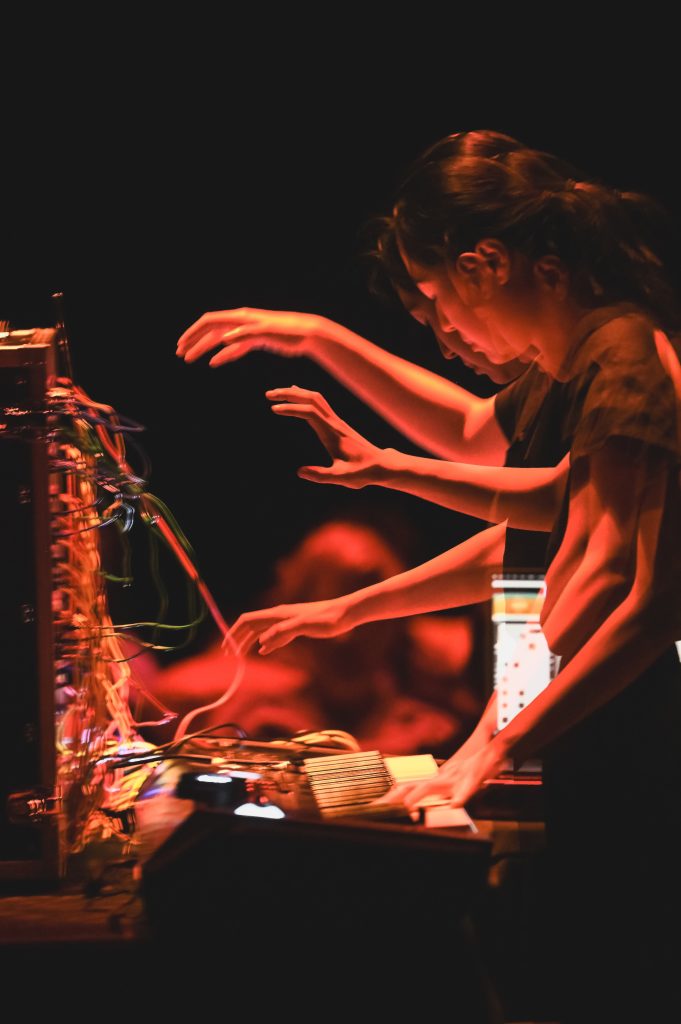
What appealed to you as a creative to choose your line of interest within the music industry? (theatre, dance, soundscape, soundtracking etc)
I call myself an undisciplinary artist – because I don’t like to work constrained by established disciplines or genres. It does make it harder to establish a career, because no one really seems to know what I do (even I don’t know) so I’m not first of mind when they are looking for someone to play a gig or compose a string quartet…but I’m happy working in this unruly way.
What would you tell your younger self if you could tell them anything?
“Nothing. I’ve made a lot of mistakes, but I needed to make them.”
What does true allyship look like to you?
Having the guts to say what you really think.
Music & activism have always gone hand in hand, when together it is powerful & influential. Why do you think that is so?
Music is coded into our lizard brain and reinforced by everything we see and hear. As a composer it is so easy to do a certain chord progression or harmony that will trigger sadness or melancholy. Rhythms that make you want to move. To a certain extent so much of music is just one cliche after another. But the fact that it’s coded into us makes it an incredibly powerful and fast pathway into our emotions. Some of the religious churches use music so effectively, for example, to create feelings of euphoria. So, of course, when you have something that is an immediate tap into emotions, that is incredibly powerful and influential.
“Sometimes I feel I was too old to start in the industry as my peers were all already well established in the field when I started as an ‘emerging’ artist, but I cannot imagine the younger me composing. I needed all that journey through motherhood and heartbreak and all that to draw on.”
Are there any important matters that need to be discussed at the forefront within the music industry that aren’t being addressed?
Everyone is talking about AI, but I think not so many people truly understand what it is and what all the different permutations of it are. So we get caught up in the media hype about generative AI and suddenly people assume they know all about it when all they’ve done is used one type of App. That is very dangerous and does not help the industry to advance its thinking about how it will adapt to it.
As an artist what is important for you to see at your shows when it comes to audience engagement, what message would you love for them to take away?
For me it’s really important when an audience is coming all the way to see something live, that I do put myself at risk and do things as much as I can live rather than having too much pre-recorded and just pressing buttons to trigger playback. I don’t know whether the audience can feel it or not, but that element of danger is crucial. I also do a lot of work that is ephemeral, it exists only in the moment because it was made with the audience or with something interactive happening at that time in that space. I haven’t yet recorded a solo album in all these years, I think because the idea of permanence doesn’t appeal to me at the moment. Maybe it will one day.
“However painful something is now, you will laugh about it eventually.“
What advice do you have for folk who are coming up in the industry, particularly in your line of work?
Early success can be a trap – if you’re lucky enough to have it, don’t fall for it. Always push yourself out of your comfort zone. And treat everyone with courtesy and kindness.
What was it like growing up & experiencing the industry outside looking in? Now that you’re in it, what has your experience been like?
I mentioned before that I don’t feel I’m in the industry. I’m in some part of the wider field. It’s the most rewarding thing I’ve ever done personally. It does take its toll on family. Being an artist can be all-consuming, and we are all egoists in one way or another – you have to be to create. I think that’s mostly the reason why I delayed coming back to art until after my kids were grown up.
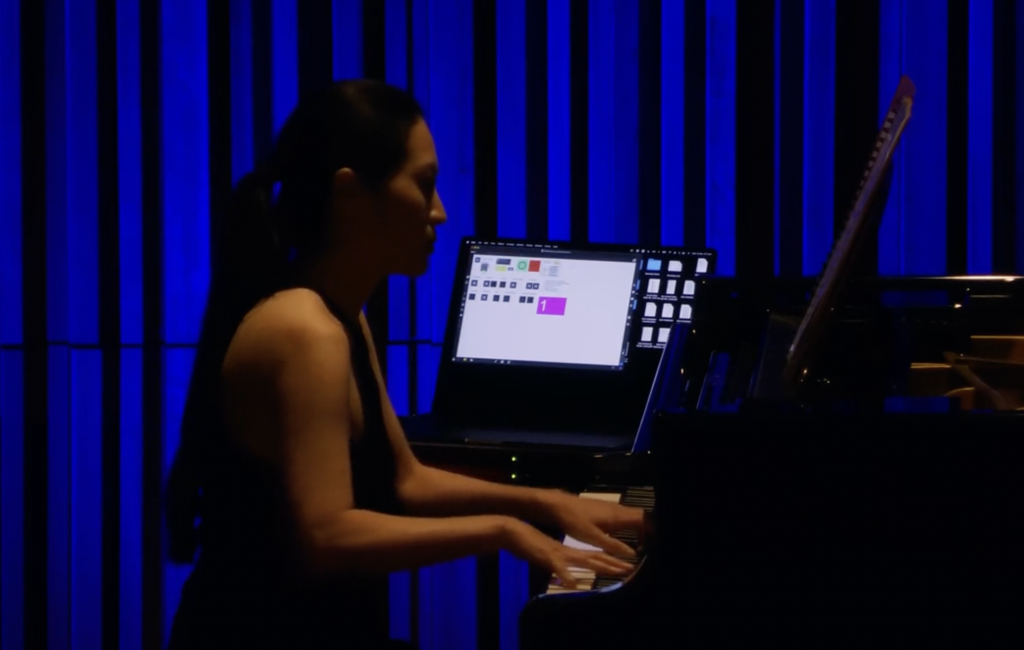
Most people don’t see the mountain of work that goes into your art till you’re towards the peak, what was the hardest obstacle you’ve had to overcome as an artist?
Giving myself the permission to prioritise my art over the thousand other things I can or have to do. It’s still a struggle.
Self identity & imposter syndrome are issues women in the industry struggle with. Have you faced this issue? If so/not, what tips can you give to encourage others to stand in their truth?
Arrh…all the time. It’s hard not to when you see amazing artists and researchers all around you everyday doing the most extraordinary things. At the end of the day though, I’ve realised that no one is good at everything. So the best thing I can do is just try to be good at some things. The most important part is to keep trying and keep learning.
“On this note calling it an ‘industry’ doesn’t feel right to me, it seems to prioritise economic outcomes. I don’t feel like I’m in the music industry, I just make music.”
When I grow up I want to be or I want to see?
I want to be one of those cool grandmas that dress however they like. I want to see…great political leaders, not short-term opportunistic populists.
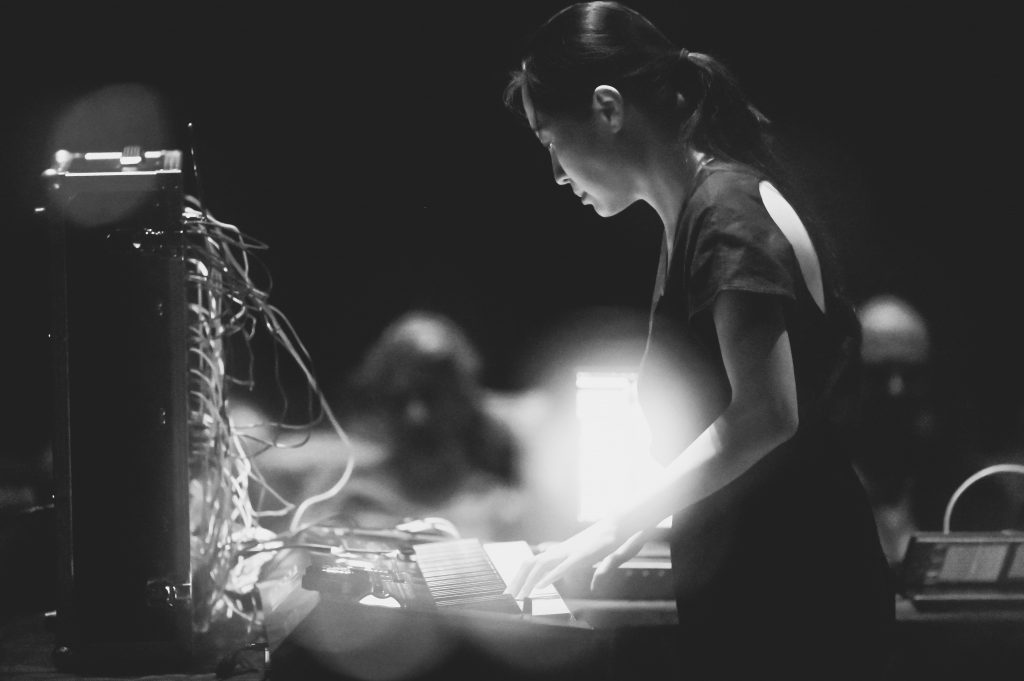
What can we all look forward to for 2024, any big projects you can let us in on?
I’m in the middle of a major work for AsiaTOPA festival next year, called Opera For The Dead with Mindy Meng Wang. It’s a performance work that combines live musicians, 3D animation and movement about Chinese rituals on death and mourning. It’s challenging but also so rewarding as it allows me to draw from all aspects of my skill set – from orchestral scoring to electroacoustic design to hacking new digital instruments…and even costume design!
I’ve also got an installation opening at the Science Gallery’s new exhibition ‘SCI-FI: Mythologies Transformed’ in early August, where we use biometric analysis AI to assign visitors to a character from Chinese mythology and produce a custom interactive sound design.
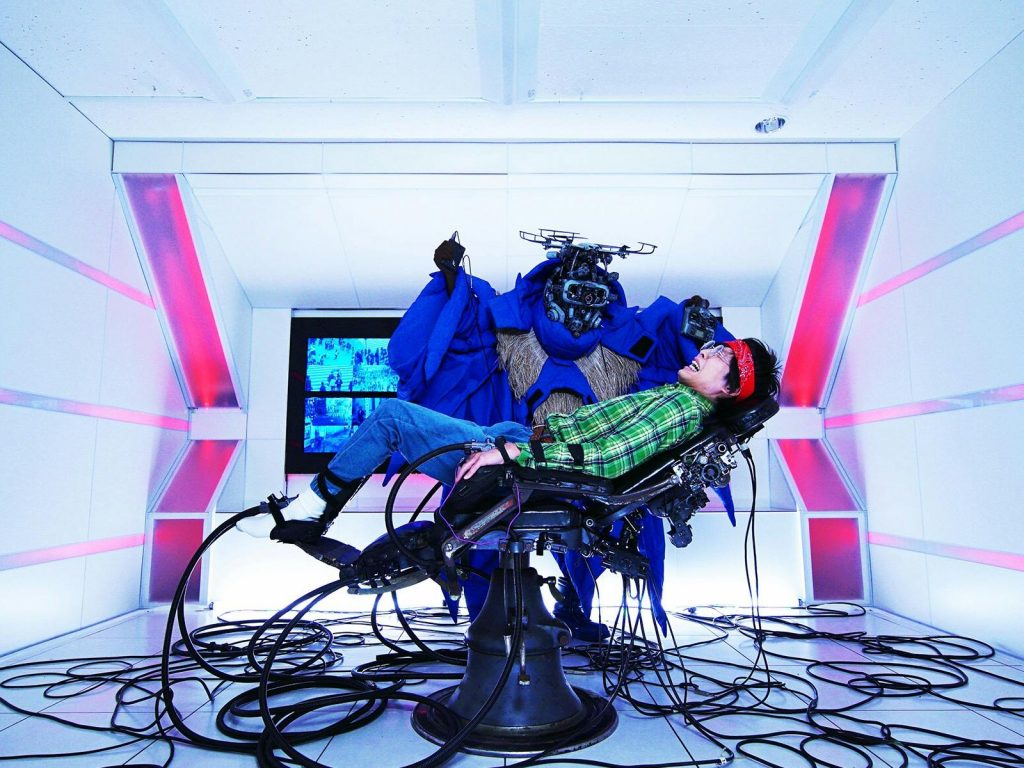
What is your go-to Karaoke song?
There’s one thing I definitely can’t do and that’s sing! So I actually hate karaoke, but if absolutely forced to, I can’t go wrong with ABBA. Even if I can’t sing it, everyone else in the room will.
